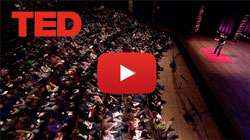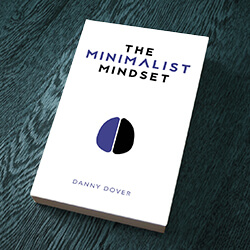1. Reading an E-mail More Than Once
E-mail is the single biggest culturally accepted time-waster of this century. This technology allows any one of the 3 billion people with Internet access (and countless automated scripts) to add something to your to-do list. Even by just erasing an e-mail in your inbox, you waste mental energy both deciding to delete it and transitioning to the next decision.
The best thing you can do to minimize the adverse effects of e-mail on your life is to never, ever, read an individual e-mail more than once. Instead, read it once and then instantly act on it (delete, reply, archive convert it into an action item or delegate it) No exceptions, break the “reread” habit and get that e-mail out of your life altogether!
2. Working While in Bed
Like it or not, humans are habitual creators. We instinctively set daily (although malleable) time blocks for sleeping, eating and other daily habits. We also set habits around places.
With smartphones and laptops it is incredibly easy to work while in your bed. Unfortunately, this habit forms a mental trap. Once you associate your bed with the parts of your brain that allow you to concentrate on work, it becomes very hard to disassociate them.
At night in your bed, a time and place where you have normally trained yourself to sleep, your brain associates with work and you are left unable to get the sleep you need.
Break this habit by making a strict “no working in bed” policy. Instead of checking your phone while still tucked under the covers, form the habit of moving to a work location (maybe a specific chair or home desk) and start your phone checking there.
3. Spending Time on Trivial Decisions
Although it has not been neurologically proven (yet!), I am a firm believer that humans have a finite amount of decision making energy on any given day. When this specific type of mental energy depletes, you are left feeling foggy and have difficulty making even simple routine decisions.
To optimize around this inherent mental limitation, decrease the amount of trivial decisions you need to make in the early parts of the day. Morning trivial decisions include:
- What to eat for breakfast
- What to wear
- Identifying location of keys
- Remembering passwords
- Where to work
- What first task to do
To break this habit of depleting your decision making energy early in your day, plan these things the night before. It takes some getting used to at night but feels completely automatic to stumble out of bed and go into auto-pilot as you make progress on your morning routine. After which, you can use all of your energies to make important decisions.
4. Apologizing For Your Passions
A person without quirks is a person not worth knowing. Our passions and quirks are what make us unique and valuable to the world. They are the fuel for every major invention and every famous act.
Unfortunately, quirks and passions are also inherently weird. Would you rather spend your time knitting rather than watching the local sports game? Would you rather tinker with code than get drunk with your friends?
Then by all means, do it!
Normal people don’t change or better the world. Instead, it is the quirky weirdos that make the world a better place for everyone.
Don’t apologize or act embarrassed about what makes you, you. Embrace it and start the habit of actively telling people you are not ashamed of your passion. (This is something I am working on. It is notably hard at first but got easier very quickly.)
Note: The people who don’t support you in your passion are likely still looking for their own passion. Don’t let their lack of focus, ruin your journey.
5. Treating High Caloric Food as a Reward
Starting from an early age, many of us are taught to treat high caloric foods as rewards. Win an event at school? We celebrate with ice cream. Having a rough day at work, many of us treat ourselves with sugar filled coffee or a baked treat.
Unfortunately, this habit works against us. These high caloric foods make us feel great in the short-term but hurt our bodies in the long term.
To break this habit, don’t bother trying to associate healthy foods with treats (there is no evidence to show this will work) but instead, work to break the association of pain to reward all together. Don’t look at a rough day as an event to gorge on food, instead, use your remaining energy to work on improving the day.
6. Starting a Break Without Doing the First Step of Your Next Project
The single biggest defeater of productively is transitions. Did you get interrupted? You just had your time wasted with two transitions (out of your flow and then back into it) Transitions are the enemy! Luckily, there is a way to make them less threatening.
Break this habit by completing the first task in your next project before you consider your last project finished.
For a writer, this might mean writing the first half of a sentence for your next chapter. For a programmer, this might mean outlining the shape of your next method with comments. For a chef, this might be preparing your next ingredient before you declare your first dish finished.
Doing the first task of your next project allows you to remove the barrier to entry (transition) of your next work block.
7. De-prioritizing Your Health
Staying healthy is the result of a million small decisions. Paradoxically, your health has the single biggest impact on your ability to be happy.
So why would something as important as health be de-priotized so often? The answer is simple. The easiest person to de-prioritize is yourself.
Break the habit of de-prioritizing health by adding any of the following small habits:
- Walk at least 5,000 steps a day (The World Health Organization recommends 10,000)
- Drink 8 cups of water a day
- Do at least 5 minutes of meditation a day
Walking, drinking water and being mindful have a disproportionate positive effect on your health. Invest in yourself by embracing these habits.
8. Accepting a Trivial Meeting Invite Without an Agenda
A meeting is never a productive task in and of itself. You (or the group) need to actually accomplish a task or goal in order for a block of time to have been considered productive.
Unfortunately, this qualification is rarely included with meeting invites. Instead, inviters incorrectly (and wastefully!) assume the act of just meeting will be valuable.
Break the habit of attending trivial meeting by only accepting invites that include an agenda with specific outcome goals. If you receive an invite without this requirement, reply and ask for a meeting agenda that includes outcome goals. If the meeting inviter can not prioritize making an agenda, then don’t attend the meeting.
Additional Habits?
What habits have you broken that have improved your life? Let us know in the comments below. I’ll add the best ones to this post!








